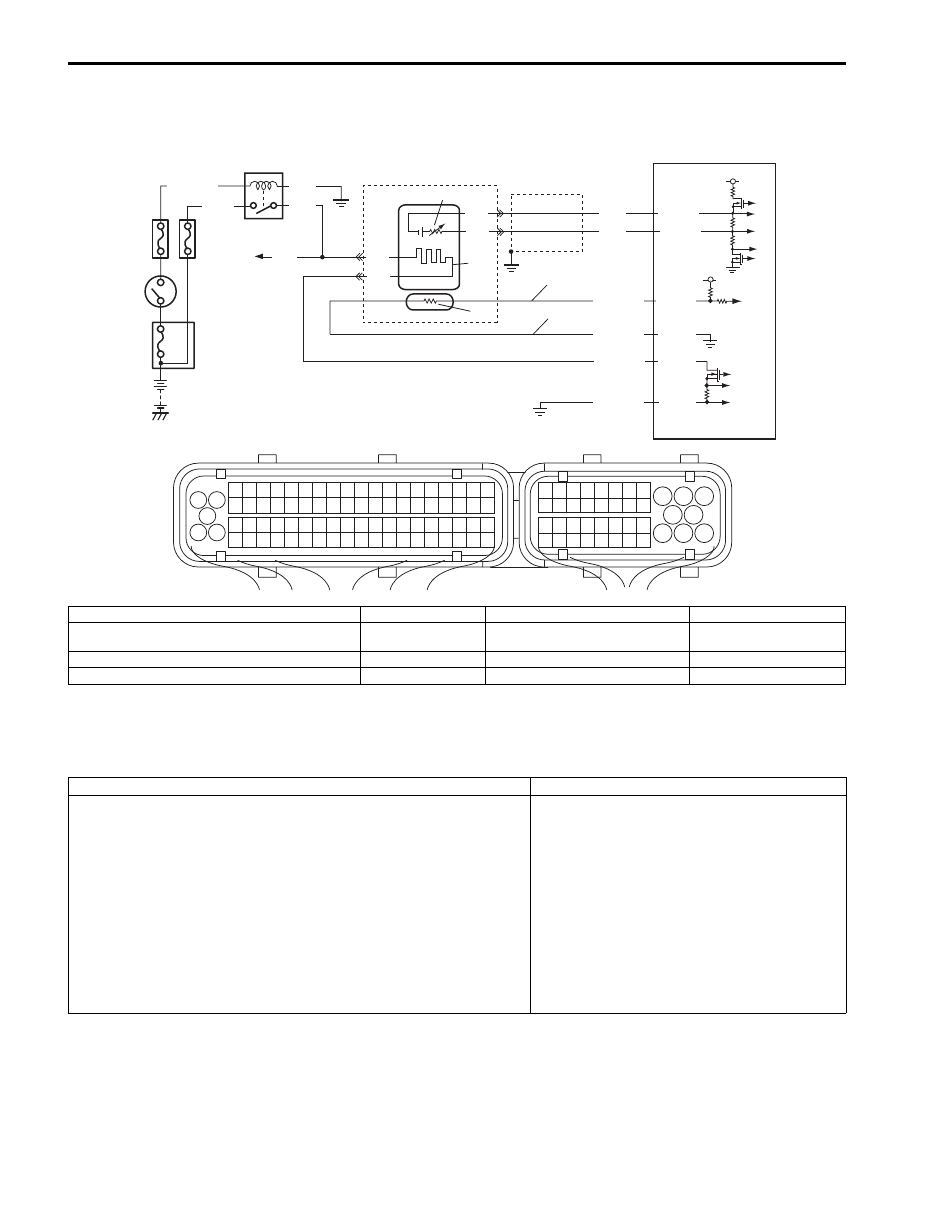Suzuki Grand Vitara JB627. Manual - part 39

1A-105 Engine General Information and Diagnosis:
DTC P0171 / P0172: System Too Lean / Too Rich (Sensor-1, Bank-1)
S6JB0B1104034
System and Wiring Diagram
A/F Sensor Description
Refer to “A/F Sensor Description”
DTC Detecting Condition and Trouble Area
4
3
9
PNK
6
2
1
a
b
8
5
BLK/WHT
BLK
PNK
GRN
C37-16
C37-77
C37-19
C37-18
BLK
BLK
BLU
WHT
C37-17
C37-79
BLK
WHT
RED/YEL
RED/BLU
PNK/BLK
BLK/YEL
10
7
11
5 V
5 V
1
3 2
4
5
6
7
8
9
1110
12
13
14
15
16
17
18
19
20
17
18
19
20
21
22
23
24
25
26
27
28
29
30
31
33
34
35
36
37
38
39
40
32
1
2
3
4
5
6
7
8
9
10
11
12
13
14
15
16
21
22
23
24
25
26
27
28
29
30
31
32
33
34
35
36
37
38
39
40
41
42
43
44
45
46
47
48
49
50
51
52
53
54
55
56
57
58
59
60
61
62
63
64
65
66
67
68
69
70
71
72
73
74
75
76
77
78
79
80
81
I6JB01110098-01
a. Adjusting resistor (+) circuit of A/F sensor (bank-1)
3. Ignition Switch
7. A/F sensor heater
11. A/F sensor element
b. Adjusting resistor (–) circuit of A/F sensor (bank-1)
4. O2 HTR fuse
8. To A/F sensor (bank-2), HO2S
(bank-1 and -2)
1. HO2S heater relay
5. IG COIL fuse
9. ECM
2. Shield wire
6. A/F sensor
10. Adjusting resistor (if equipped)
DTC detecting condition
Trouble area
DTC P0171 System Too Lean (Sensor-1, Bank-1):
Total fuel trim (short term + long term fuel trim) is larger than 127% for
more than 20 sec, or short term fuel trim is larger than 130% for more
than 30 sec.
(2 driving cycle detection logic)
DTC P0172 System Too Rich (Sensor-1, Bank-1):
Total fuel trim (short term + long term fuel trim) is smaller than 71%
for more than 20 sec, or short term fuel trim is larger than 70% for
more than 30 sec.
(2 driving cycle detection logic)
• Vacuum leakage
• Exhaust gas leakage
• Fuel pressure out of specification
• Fuel injector malfunction
• A/F sensor malfunction
• MAF sensor malfunction
• Intake & exhaust valve clearance
• Intake & exhaust valve
• Valve timing
• ECM